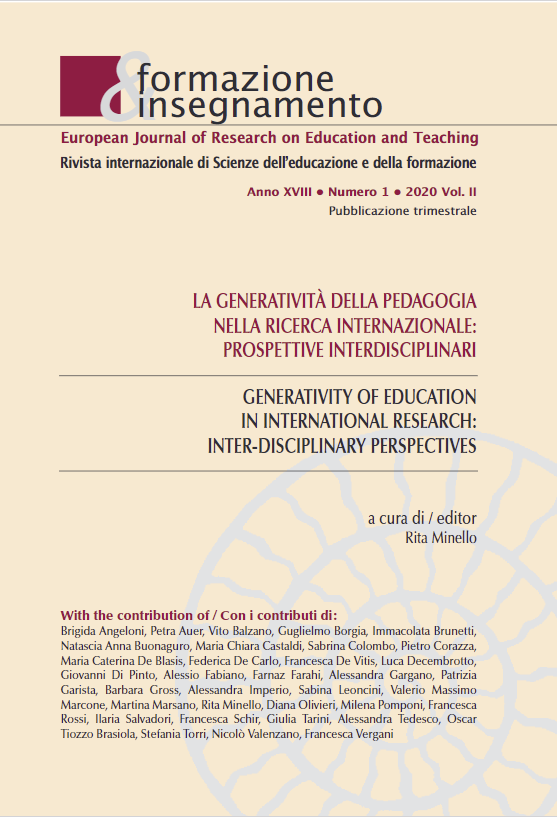Interdisciplinarity and creative thinking. The Design Thinking approach for a new pedagogical humanisms
DOI:
https://doi.org/10.7346/-fei-XVIII-01-20_62Abstract
The paradigm of “lifelong education” is a global must that invites pedagogy and the sciences of education, to rethink its theoretical systems in view of what the “educational society” could be. Enhance the double bond between man and society, in a relationship of reciprocity and interdependence for the start of a new humanism, through the recovery of the fundamental conceptual and epistemological cores. There are many scientific fields, in particular of an economic-business and technological nature, which are moving in this direction. Interdisciplinarity is an indispensable element not only for comparison and dialogue but for the co-construction of complex knowledge, woven into new contents and methods, aimed at promoting a thought, also complex, capable of problematization and of cultural and social regeneration. Recovery and enhancement of interdisciplinarity, conceived in Piaget’s way, as a “circle of sciences” that establishes interdependence between them (sciences) showing their interconnections and solidarity, overcoming fragmentation and epistemological isolation.
Downloads
Published
How to Cite
Issue
Section
License
Copyright (c) 2020 Pensa MultiMedia

This work is licensed under a Creative Commons Attribution 4.0 International License.
Formazione & insegnamento is distributed under Attribution 4.0 International (CC BY 4.0).
For further details, please refer to our Repository & Archiving Policy, as well as our Copyright & Licensing Terms.





